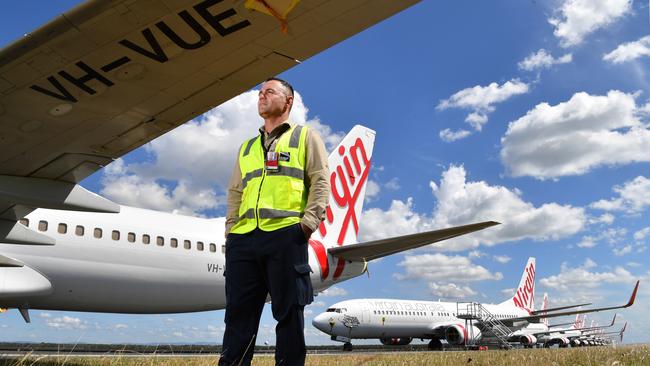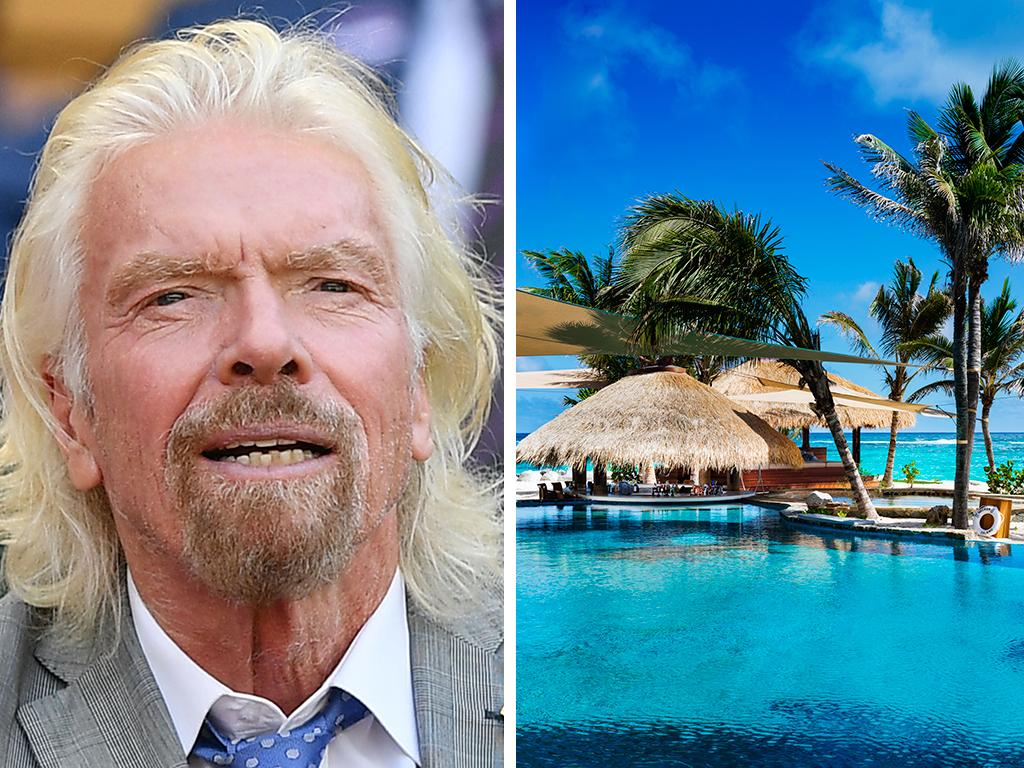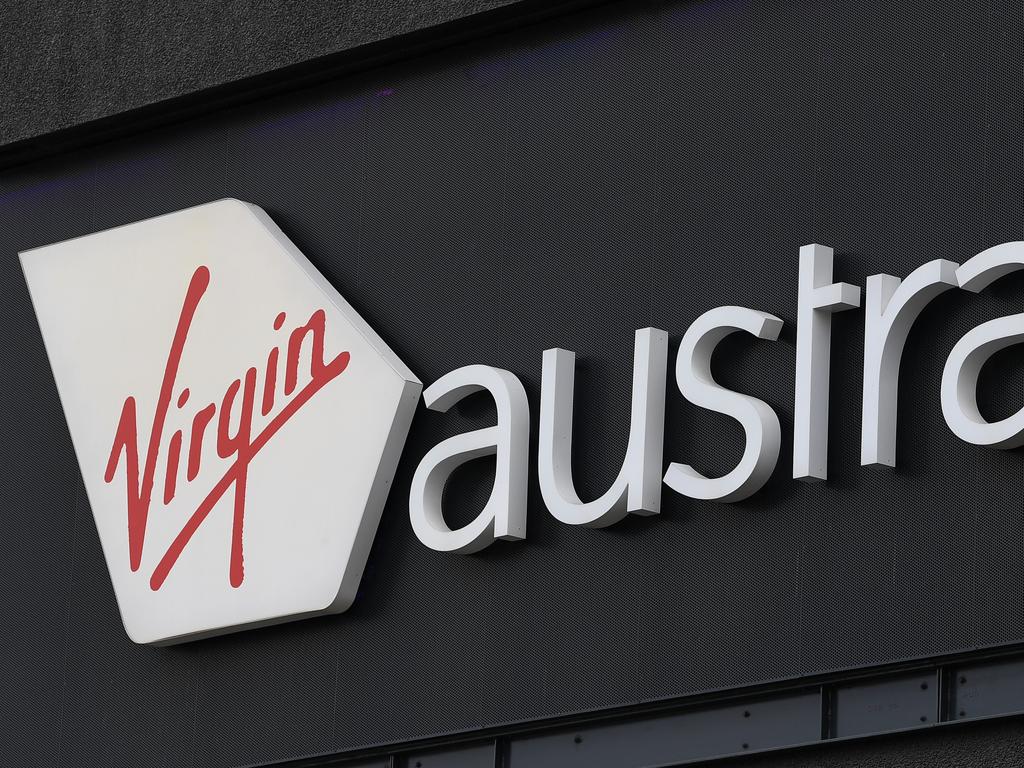
BHP escaped the US shale nightmare at the right time and is winning in iron ore.
Here in Australia we are watching our biggest collapse in history – Virgin Australia – which is in administration with at least $5bn in debts. The Virgin-US shale collapse stories are mirror images of each other, even down to the immediate trigger.
In the case of Virgin, customers with vast sums worth of forward airline bookings want their money back. Virgin can’t pay. Those customers have to hope for a rescue, or their forward booking money is lost along with at least $700m owed to trade suppliers.
Qantas CEO Alan Joyce knows that the goodwill he will create by paying out cancelled tickets will last for a decade. That said, the repayment task at Qantas is so huge that customers are being told they have to wait six to eight weeks. “But it’s coming, please be patient,” customers who can access a phone line are told. Qantas can raise the money. Virgin couldn’t.
In the US, the equivalent of returning the forward bookings is the fact that there is very little storage available for the oil, so oil now has a negative value on the futures market.
And the US shale oil industry, like Virgin, undertook its expansion and development by borrowing billions of low-cost money that was available in the era of token interest rates. Virgin and US shale raised their money by offering rates that were just a little above the low levels offered by top borrowers. The lenders relied on the willingness, and ability of shareholders to come to the party in a crisis rather than on the borrowing balance sheets.
So, to illustrate how the Virgin and shale disasters unfold let’s go back just six months when Virgin was buying out the minority shareholders in its frequent flyer program. Two years earlier, in 2017, Virgin had shareholders’ funds of $1.6bn. The June 30 2019 balance sheet that the noteholders were presented had shareholders funds down to just $619m and interest-bearing debt was about $3bn, with vast lease obligations on top.
The frequent flyer program purchase should clearly have been funded with substantial equity, but the big Virgin shareholders led by Chinese airlines, HNA and Nanshan, Etihad and Singapore Airlines did not want to subscribe. They all had minority positions and for each airline subscribing to Virgin shares did not make sense. It was an ominous warning of what might be ahead.
But with billions sloshing around Australian and global debt markets there was no need for equity anyway. Virgin tentatively tested the Australian market with a $150m target unsecured note offer at an interest rate of 8 per cent. Then the directors saw the pile of money lining up to invest and they amended the offer and harvested around $325m, double the original target.
In the America, a similar Virgin unsecured note security was offered but dominated in US dollars. The Americans did not want to miss out – this was a diversification from shale debt – and they subscribed $US425million at 7 per cent.
And so six months from the collapse around $A1billion had been raised in unsecured money. Lenders were out in the cold if anything went wrong.
To be fair no one could have forecast COVID-19 and the shutdown of the airline. And a number of Virgin directors including chair Elizabeth Bryan and former Defence chief Angus Houston took up notes. They had faith in the security.
Two months later, on December 31, the next balance sheet was being prepared and it was set show shareholders’ funds of a sickening negative $1.6bn — down $2bn on the shareholders funds six months earlier that was used in the note issue prospectus. Still no equity came from the group’s big airline shareholders.
Then in February the accounts were released, and the horrible balance sheet was there for all to see except you had to go into the detail of the accounts. The shareholders funds’ fall into the negative was masked by cash flow sums and was not highlighted. I did not check.
The directors who subscribed to the notes watched the value of their securities slump when the balance sheet came out. But Australia was set to enjoy two incredible weeks of prosperity where we did not appreciate what was ahead in COVID-19.
Not built to last
The big shareholders in Virgin had allowed the second Australian airline to get into a position where it could not stand a disaster.
It would be very wrong if any government tried to save a company that allowed itself to get into such a perilous position. If there is to be any saving it will be directed at the actual the business and unsecured creditors will swing unless their survival (such as trade suppliers), is essential for the business.
A government may conceivably help in those circumstances but in Virgin’s case there will need to be substantial equity perhaps led by industry funds and just one international airline plus private equity.
If that can’t be done, then the alternative is allowing international airlines access to the domestic Australian routes as the only way competition can be provided to Qantas.
Meanwhile every flight cancellation payment that Alan Joyce sends out cements Qantas goodwill among its customers. A “rescued Virgin” may have to match.
FOOTNOTE: It’s not all bad news for Australia. BHP is enjoying strong iron ore demand from China and Vale production is down as the coronavirus sweeps Brazil. BHP (and Rio) shifted key mine staff to WA from other parts of Australia and New Zealand as the crisis loomed. However longer term, BHP needs the oil price to rise.








Last night, for the first time in history a US oil futures contract priced “black gold” at a negative. That is, you pay money to produce oil. Unless there is a massive US government bailout, that event will trigger the biggest set off collapses in global history with some $US200bn in debt swirling around the US shale oil industry.